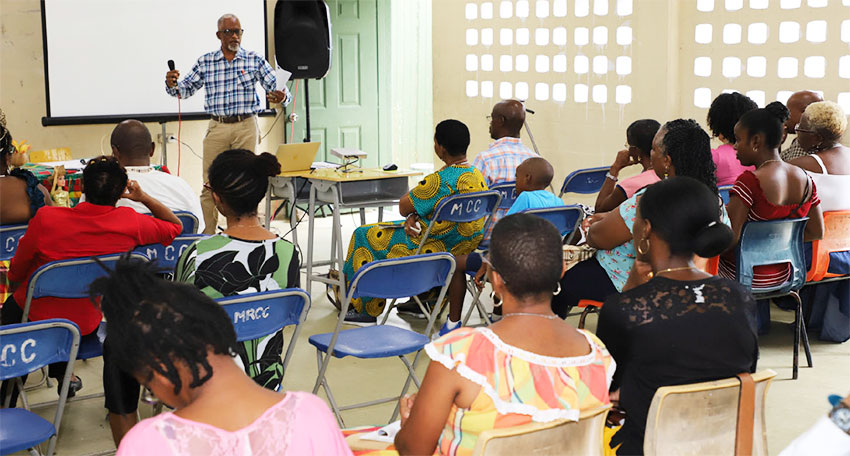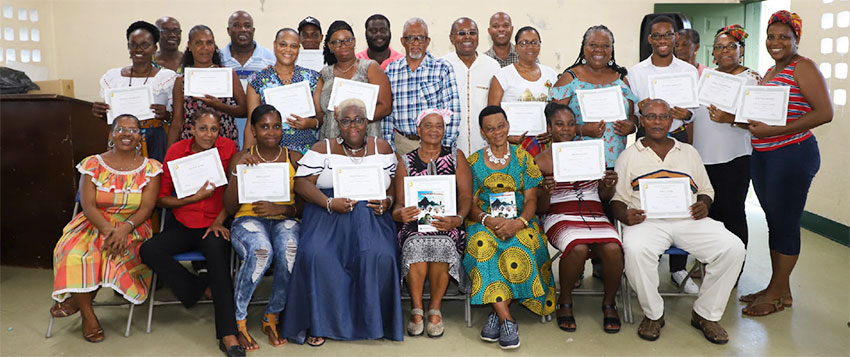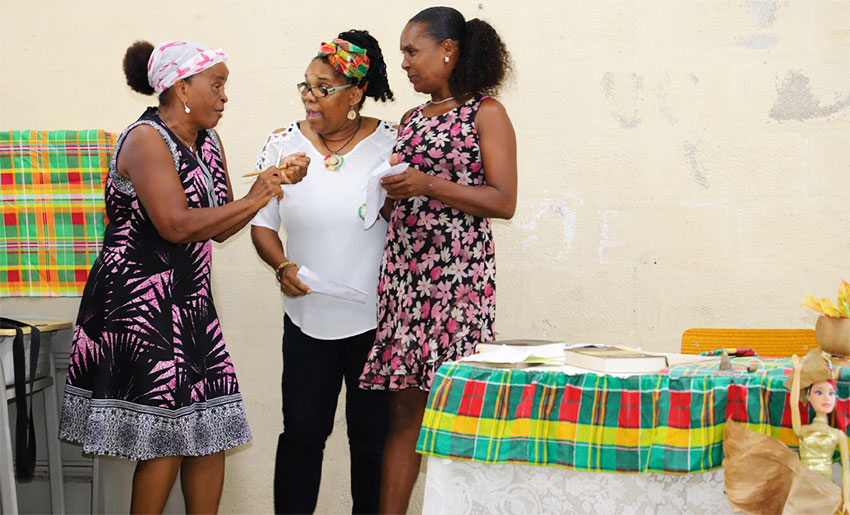THE Monsignor Patrick Anthony Folk Research Centre (FRC) on Saturday October 12, hosted an enriching Kwéyòl Retreat at the Patience Combined School, in Mon Repos. The retreat formed part of the conclusion of a project by the FRC supported by the World Association of Christian Communication (WACC); titled ‘Making Kwéyòl Language Speakers Advocates for Sustainable Development’. In attendance were project participants, facilitators, 2018 La WénnKwéyòlMs Phyllis Wilson, residents of Mon Repos, FRC Board members, representatives of Events Company of Saint Lucia, linguists and Creole enthusiasts.

In keeping with the focus of Sustainable Development, experts in the field, Dr Jimmy Fletcher and Julius Polius delivered exceptionally stimulating presentations and provided great local context of the United Nation Sustainable Development Goals (SDGs). The SDGs were presented in Kwéyòl with Fletcher and Polius further orating in Kwéyòl for the duration of their sessions.
Other components of the Kwéyòl retreat included an IT and Social Media presentation, a reflective presentation on the development and expanse of the Kwéyòl language, its vocabulary and cultural impact by Miss Armelle Mathurin, and an interactive quiz on common Kwéyòl proverbs and sayings. The project was conducted in three satellite communities, including Monchy, Babonneau and Patience Mon Repos facilitated by Marylin Hyacinth, DrKentryJn Pierre and Micheal Gaspard.

Executive Director of the FRC Louise Victor commented on the day’s retreat, calling the proceedings “remarkably timely”.
“The main purpose of the overall project is to build capacity of Kwéyòl language users to utilize the language in myriad of spaces, particularly through social media discussions, blogs and web posts on a wide range of matters related to sustainable development, community action and national governance,” she noted. “At the FRC, we recognize awareness of the SDGs as pivotal to national development, however we also acknowledge that the understanding of the SDG’s through indigenous languages to impact civic behaviour is equally critical.”

All participants of this programme received certification for completion of Kwéyòl literacy training and one complimentary Kwéyòl dictionary each.










![.[L-R] Parliamentary Representative for Castries Southeast, Lisa Jawahir & Talk show host, Timothy Poleon](https://thevoiceslu.com/wp-content/uploads/2026/02/Lisa-Jawahir-Timothy-Poleon-380x250.jpg)
![Public Service and Utilities Minister Stephenson King delivered remarks [Photo credit: VP]](https://thevoiceslu.com/wp-content/uploads/2026/02/Stephenson-King-380x250.jpg)

